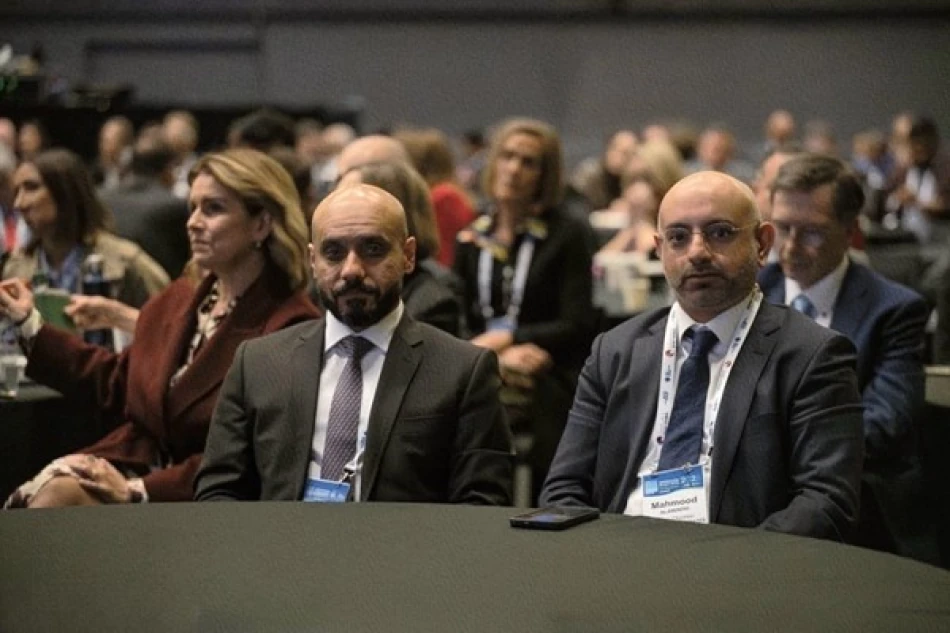
Ajman Chamber Represents UAE at Global Chambers Conference in Melbourne
Ajman Chamber Stakes Global Position at Melbourne Business Summit
The Ajman Chamber of Commerce is leveraging Australia's premier international business conference to position the UAE emirate as an emerging investment destination, joining over 1,200 global business leaders in Melbourne to forge strategic partnerships and showcase the region's economic transformation under the "Business, Government and Chambers - Partners for Prosperity" theme.
Strategic Delegation Targets Investment Flows
The emirate's delegation, led by board member Mahmoud Othman Abu Al-Shawareb and executive director Mohammed Ali Al-Janahi, represents a calculated move to elevate Ajman's profile beyond its traditional role as a smaller player in the UAE's economic landscape. The 14th World Chambers Congress, running through September 4, brings together representatives from over 100 countries, creating a concentrated networking environment that smaller chambers rarely access.
This participation signals Ajman's ambition to compete more directly with established UAE business hubs like Dubai and Abu Dhabi, particularly as the federation's economic diversification efforts create opportunities for secondary emirates to carve out specialized niches.
Bilateral Meetings Drive Partnership Pipeline
Al-Janahi confirmed the delegation will conduct targeted bilateral meetings with international chamber representatives, focusing on concrete partnership opportunities rather than ceremonial exchanges. This approach reflects a broader shift among Gulf chambers toward results-oriented international engagement, moving beyond traditional trade missions to structured investment facilitation.
Regional Competition Intensifies
The Melbourne conference comes as regional business hubs intensify their competition for foreign direct investment. Saudi Arabia's Vision 2030 initiatives, Qatar's post-World Cup economic pivot, and Oman's renewed focus on logistics and manufacturing have created a more crowded field for investment attraction across the Gulf.
Ajman's participation suggests recognition that passive reliance on UAE-wide economic growth may no longer suffice. The emirate's manufacturing base and strategic location between Dubai and the northern emirates provide competitive advantages, but only if actively marketed to international investors.
Economic Diversification Drives International Outreach
Abu Al-Shawareb's emphasis on showcasing "innovative initiatives and projects" aligns with broader UAE efforts to demonstrate economic sophistication beyond oil dependency. For international investors, Ajman offers lower operational costs than Dubai while maintaining access to the same regulatory framework and infrastructure networks.
The timing proves significant as global supply chain disruptions have prompted manufacturers to seek alternative production bases. Ajman's existing industrial zones and proximity to major ports position it well for companies implementing "China Plus One" strategies or reshoring operations closer to European and African markets.
Measuring Success Beyond Networking
The delegation's success will likely be measured through concrete follow-up agreements rather than conference attendance alone. Regional chambers have increasingly adopted private sector metrics for international engagement, tracking actual investment commitments and partnership implementations rather than traditional diplomatic outcomes.
This performance-oriented approach reflects growing pressure on emirate-level institutions to demonstrate tangible contributions to economic growth, particularly as federal UAE policies increasingly emphasize competitive federalism among the seven emirates.
Most Viewed News

 Layla Al Mansoori
Layla Al Mansoori






